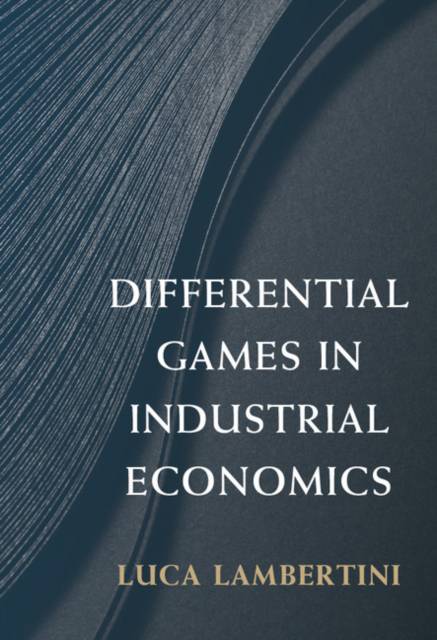
- Afhalen na 1 uur in een winkel met voorraad
- Gratis thuislevering in België vanaf € 30
- Ruim aanbod met 7 miljoen producten
- Afhalen na 1 uur in een winkel met voorraad
- Gratis thuislevering in België vanaf € 30
- Ruim aanbod met 7 miljoen producten
Zoeken
€ 180,45
+ 360 punten
Uitvoering
Omschrijving
Game theory has revolutionised our understanding of industrial organisation and the traditional theory of the firm. Despite these advances, industrial economists have tended to rely on a restricted set of tools from game theory, focusing on static and repeated games to analyse firm structure and behaviour. Luca Lambertini, a leading expert on the application of differential game theory to economics, argues that many dynamic phenomena in industrial organisation (such as monopoly, oligopoly, advertising, R&D races) can be better understood and analysed through the use of differential games. After illustrating the basic elements of the theory, Lambertini guides the reader through the main models, spanning from optimal control problems describing the behaviour of a monopolist through to oligopoly games in which firms' strategies include prices, quantities and investments. This approach will be of great value to students and researchers in economics and those interested in advanced applications of game theory.
Specificaties
Betrokkenen
- Auteur(s):
- Uitgeverij:
Inhoud
- Aantal bladzijden:
- 272
- Taal:
- Engels
Eigenschappen
- Productcode (EAN):
- 9781107164680
- Verschijningsdatum:
- 26/05/2018
- Uitvoering:
- Hardcover
- Formaat:
- Genaaid
- Afmetingen:
- 180 mm x 249 mm
- Gewicht:
- 635 g

Alleen bij Standaard Boekhandel
+ 360 punten op je klantenkaart van Standaard Boekhandel
Beoordelingen
We publiceren alleen reviews die voldoen aan de voorwaarden voor reviews. Bekijk onze voorwaarden voor reviews.











